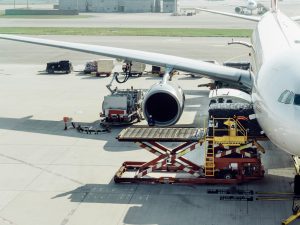Mahindra Logistics has expanded its Eastern India presence with the launch of two Grade A warehousing facilities in Guwahati and Agartala, adding over 4 lakh sqft capacity in the region. Spread across 3 lakh sqft, the Guwahati facility is the largest Grade-A multi-client warehousing facility in Northeast India. It houses the region’s first CCE, launched in partnership with the Logistics Skill Council under the Union Ministry of Skill Development & Entrepreneurship. The facility enhances the firm’s ability to serve key industrial clusters and transport hubs. Located 500 metres from NH 17, 11.7 km from Guwahati airport, and 7.1 km from Mirza Railway Station, it provides link to nearby industrial areas, including Uparhali, Palasbari, and Rampur Industrial Parks. The 1.3-lakh sqft Agartala facility is located to link fortify connectivity with consumption and production centres across Tripura, Mizoram, Meghalaya, and Manipur. It establishes a platform for cross-border trade with Bangladesh through a network that supports just-in-time shipments and fast, reliable fulfilment. Serving as a gateway for express logistics services, the facility enhances first-and-last-mile delivery, while advancing Mahindra Logistics vision of a future-ready logistics network.
Read More »‘Govt is planning to develop concept paper to promote hub airports in India’
Pradeep Panicker, CEO, GMR Hyderabad International Airport said, “The Government has been promoting trade through initiatives like the recent G20 Middle East Europe Economic Corridor, which promotes EXIM trade. Additionally, the National Logistics Policy, Unified Logistics Interface Platform and Gati Shakti are initiatives aimed at transforming the domestic logistics market, ensuring multi-modal connectivity, enhancing inter-stakeholder coordination and improving the ease of doing business in India. On the airports front, the government is in the process of developing a concept paper to promote hub airports in India. This initiative aims to position India as a hub for both passenger and cargo traffic, further enhancing its role in international trade and logistics.
Read More »‘Need bigger cargo terminals & liberalised policies for seamless connectivity’
Dipen Lalsodagar, Deputy Director – Sales, Global Aviation Services said, “India can provide the best connectivity between Europe and the Far East geographically. India is able to convert several airports into numerous freight hubs because it has the most airports in South Asia and a constantly changing infrastructure. Multimodal operations can connect a large number of seaports. To achieve this vision, we need liberalised aviation policy for seamless connectivity, bigger cargo terminals which are technologically advance and with skilled manpower to handle huge volumes, good infrastructure for multimodal connectivity, liberalised customs regulations for international cargo transfer and single window documentation between sea and air connectivity. Airport infrastructure requires bigger and modern infrastructure and more skilled manpower, implementing paperless process is the need of the hour. Liberalised customs regulations to handle international transfers between airports and seaports.
Read More »‘Tech integration and robust cold chain infra vital for perishables, pharma products’
Sunil Kohli, MD, Rahat Cargo said, “There is no gainsaying the fact that India is equipped with ideal geographical locations and has been steadily growing towards an enhanced economy apart from improving an all-round infrastructural support yet there are several other factors to be considered while trying to make the country as a global transshipment hub. As regards National Logistics Policy, it has taken various aspects of logistics into account knitting together all the dimensions, but the question remains that which agency will be entrusted upon these jobs whether warehousing, different modes of transport, packaging and metal handling. For example, for agri products, the temperature plays a major role in retaining their longevity hence transfer from a cold place to a warm one may cause deterioration of contents if not strictly taken care of with essential cooling facilities being in place to a transhipment hub. Thus, maintaining a robust cold chain is vital which is likely to encounter default in absence of proper infrastructure. Therefore, in regard to the goods especially the perishables it is vital to have these quality wise intact till the last mile delivery. Hence, in our opinion, several essential and adequate steps need to be taken to plug all the existing loopholes in the present system in logistics before India is considered fit to be declared a global transhipment hub.
Read More »‘Continue investments in modernising & expanding cargo handling processing facilities’
Vipin Vohra, Chairman, Continental Carriers said, “To realise India’s dream of becoming a global cargo hub, the industry must continue investing in modernising and expanding cargo handling processing facilities of international standards, integrating technology for efficient cargo handling and reducing turnaround times. Introduction of new globally accepted cargo handling facilities viz., Air Freight Stations, at off-Airport locations, to reduce the congestion at the cargo terminals. Enhancing connectivity between ports, rail, road and air transport networks to facilitate seamless movement of cargo across different modes of transportation. Embracing digital technologies to optimise supply chain operations, reduce paperwork, and enhance transparency. Streamline and simplify cargo clearance procedures and reduce bureaucratic hurdles to improve ease of doing business.
Read More »‘For sustained growth, India needs to negotiate favourable trade agreements’
CK Govil, CMD, Activair Airfreight said, “Tariffs significantly affect Indian pharma exports by raising costs and reducing competitiveness in global markets. While India is a leading supplier of affordable generics, higher tariffs in importing countries can restrict access, disrupt supply chains, and erode market share. This may also discourage innovation and investments. For sustained growth, India needs to negotiate favourable trade agreements and push for tariff reductions to maintain its global pharma leadership.”
Read More »‘ Industry must shift to R&D, Biosimilars as tariff hit generic pharma trade’
Balagopal Balachandran, National Head – Air Freight, FEI Cargo said, “India’s USD 27 billion pharma exports, commanding a 20 per cent global generic share, now face tariff headwinds that threaten hard-won competitiveness. Overseas facilities may bypass tariffs but demand 25–30 per cent higher CAPEX, squeezing mid-sized firms, while only large players can absorb the shock. The real opportunity lies beyond firefighting through tariff diplomacy, market diversification, and a decisive pivot to R&D driven formulations and biosimilars. This not only cuts tariff exposure but positions India as a resilient, innovation led pharma hub shaping global healthcare.”
Read More »IBS unveils AI-powered tools to boost air cargo ops
IBS Software announced a breakthrough in AI-driven cargo management at the 25th edition of its flagship Cargo Forum in New Delhi, unveiling a new generation of AI-powered virtual agents designed to redefine how airlines and cargo handlers operate. The new Agentic AI suite brings intelligence, speed, and foresight to mission-critical workflows across the iCargo platform, setting a new standard for digital cargo transformation. The Agentic AI suite introduces intelligent, conversational agents embedded across the iCargo platform to support key business functions such as Revenue Management, Customer Service, Mail Management, and Sales. Users can interact in natural language to receive contextual insights and real-time recommendations. These agents don’t just respond, they predict, recommend and explain. Whether it’s optimizing yield, resolving customer queries in seconds, or flagging anomalies in mail and sales processes, the AI suite turns data into real-time decisions, reducing human effort while boosting accuracy and speed. According to Radhesh Menon, Head of Cargo & Logistics Solutions at IBS Software, the new tools are built to address real-world challenges across the cargo value chain. “These AI agents act as copilots, empowering cargo teams to recover revenue faster, respond to disruptions instantly, and deliver personalized customer experiences at scale. This is about transforming operations from reactive to predictive,” he said. The platform’s three-pronged approach focuses on transforming customer experiences through conversational and hyper-personalised interfaces, driving operational excellence via intelligent virtual agents and fostering an AI-first culture that democratises insights across teams. These innovations are designed to deliver measurable outcomes – faster revenue recovery, reduced manual effort, and improved service levels, while ensuring trust, compliance and scalability for global cargo operations.
Read More »J. Krishnan honoured as Cargo Legend at ICA 2025
J. Krishnan, Partner, S. Natesa Iyer Logistics LLP, was presented with the Cargo Legend Award at the recently concluded India Cargo Awards in New Delhi. Expressing his thoughts, he said, “The air cargo and logistics industry must recognise, encourage and inspire the new generation to work with passion and commitment. Awards like these play a vital role in building enthusiasm and drawing young talent to take this industry to greater heights. If I were the minister, I would ensure logistics is introduced as a subject right from middle school to create awareness and interest early on.”
Read More »Air cargo demand increases by 4.1%: IATA
Air cargo demand grew 4.1 per cent in August, marking the sixth consecutive month of year-on-year growth. Volumes continue to grow even as global trade patterns change. Air cargo has benefitted from a shift from sea for some high value goods as shippers try to minimise the risk of tariff changes,” said Willie Walsh, Director-General, IATA. And growth patterns indicate some being diverted away from North America, fuelling stronger growth for the Europe–Asia, within Asia, Africa–Asia, and Middle East–Asia trade lanes. “This adaptability is vital as the shippers navigate the evolving landscape of US tariff policy,” Walsh said.
Read More » Cargo Breaking News
Cargo Breaking News









